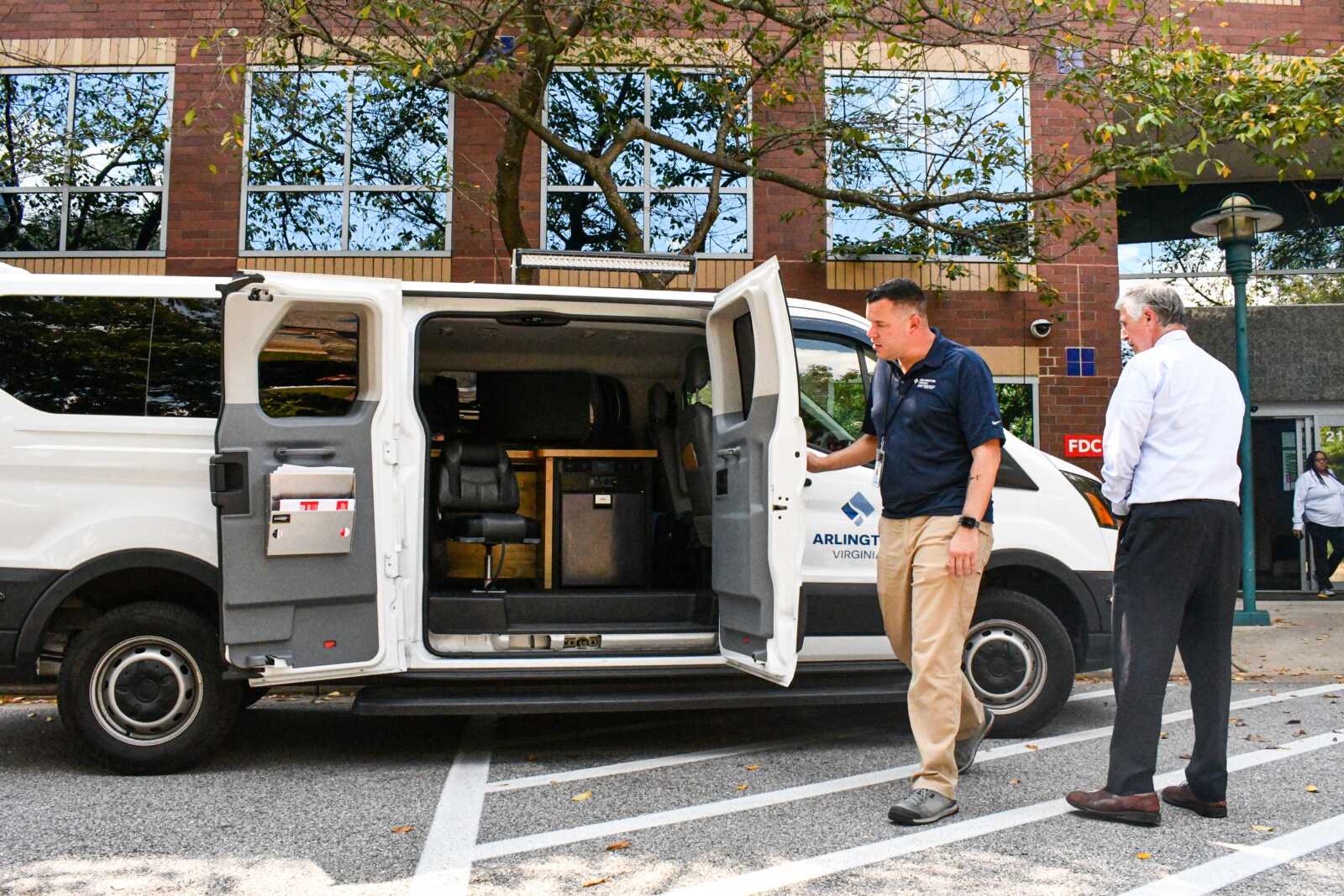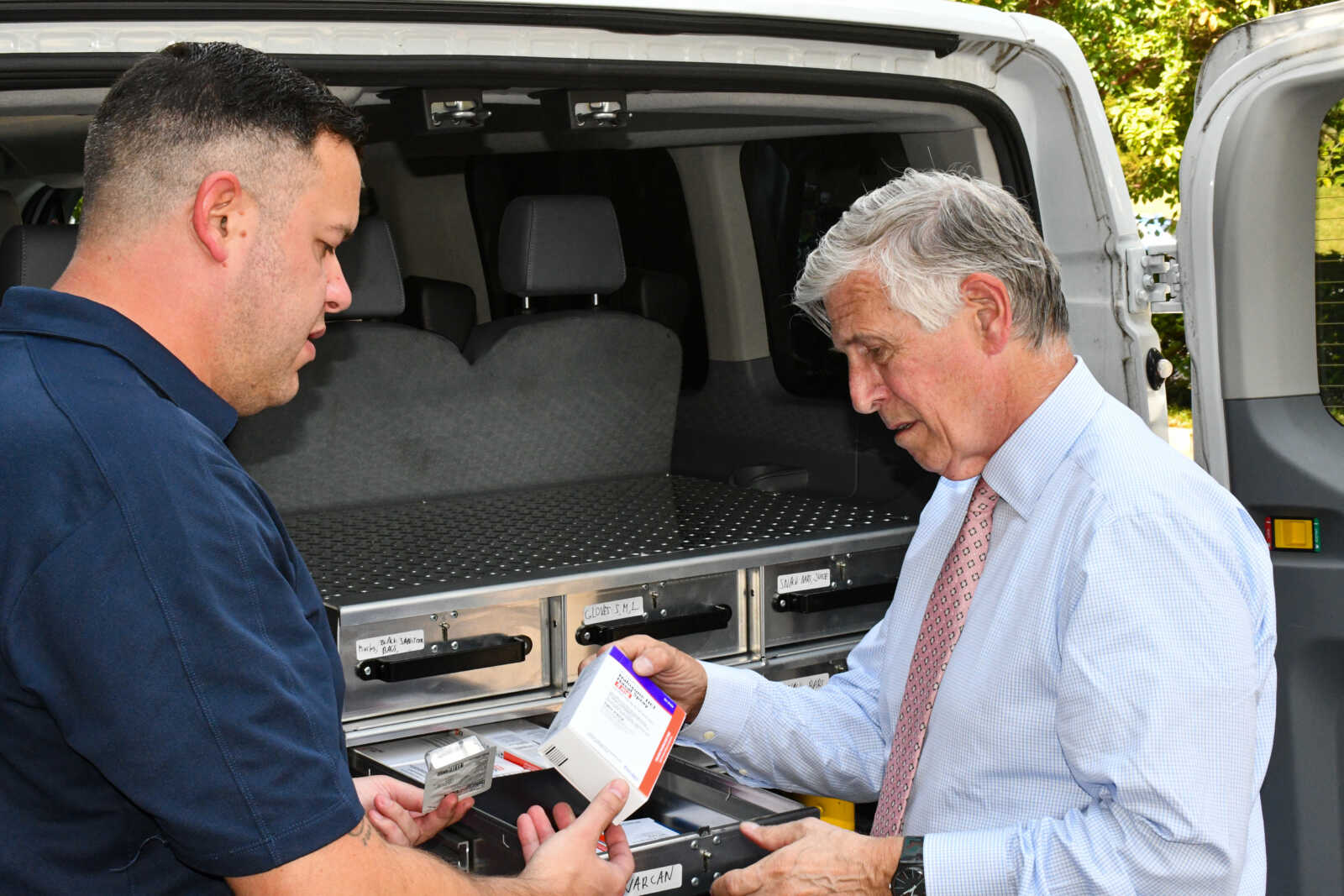In its first month of operation, Arlington County’s mobile behavioral health response team has been busy responding to calls.
Most of these calls — which range from welfare checks to mental health emergencies and drug overdoses — involve people who are homeless, officials say. It’s a trend they attribute to the recent closures of shelters in D.C.
“There’s been a surge of homelessness in Arlington County because of the closures in D.C.,” says Grace Guerrero, senior clinical psychologist and mental health supervisor, noting many are leaving D.C. for Arlington as well as other parts of Northern Virginia and southern Maryland.
“We’ll see what unfolds,” she added. “But we have seen those upticks.”
During a media event on Thursday, Arlington County’s “Mobile Outreach Support Team” (MOST) showed off its retrofitted van, stocked with non-perishable food, water, a defibrillator, clothes, hygiene items, Narcan and fentanyl test strips.
The vehicle was funded through a 2-year, $390,000 federal grant — secured with help from Rep. Don Beyer — in an effort to divert police involvement from calls involving mental health crises, substance abuse or domestic violence.
The team comprises a licensed clinician, a peer recovery specialist and an outreach worker from the Dept. of Human Services. They will triage a situation on-site and provide peer support and conflict resolution. MOST also works with medical and behavioral health services to ensure people receive the appropriate care.
The MOST team receives about 20-35 calls per week, largely between the van’s operational hours of 1-9 p.m. Once the van arrives, most of the time, people accept the team’s help, which Guerrero noted can prevent situations from escalating and resulting in injuries or death.
Guerrero says she is unsure if MOST has significantly reduced police involvement in mental health crises at this point. That is in part because emergency responders are still, typically, the first to arrive on scene, and will call the MOST team for specialized assistance.
To further reduce police involvement in these calls, she is looking to develop an enhanced “decision tree” to help police assess when their presence may not be necessary.
“I don’t know that we’ve done yet the curbing of [police] going to these [situations] unless we self-deploy… But right now, in these first five weeks, I would say that probably allowed [police] to go back into service sooner, much sooner,” she said.
Reducing law enforcement involvement in mental health crises is a goal advanced by the Police Practices Work Group, which was convened to suggest reforms to the Arlington County Police Department after the death of George Floyd.
ACPD too has noted the increased entanglement of police officers in mental health emergencies and the officer burnout to which it is contributing. Like the police department, the jail also is seeing an influx of inmates with mental health disorders as well as homeless inmates.
This includes Abonesh Woldegeorges, a 73-year-old woman who died in the jail last month. Her death prompted some in and outside local government to renew pressure on the county to address the role of law enforcement in tackling homelessness and mental health emergencies.




